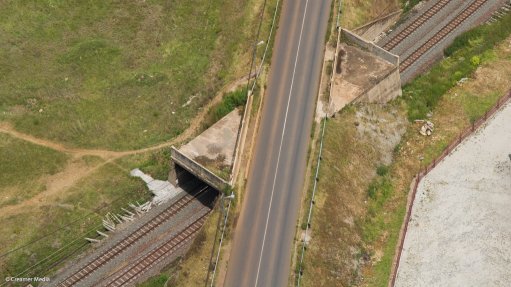
Photo by: Duane Daws
Tolling of South Africa’s national roads was essential to ensure the upkeep and maintenance of the popular trade and holiday routes, special purpose vehicle Bakwena Platinum Corridor Concessionaire said on Wednesday.
Bakwena, which was responsible for 385 km of roads on the N1 and N4, was required to toll the roads to fund its responsibility under a 30-year concession with the South African National Roads Agency Limited (Sanral).
The funding was allocated to rehabilitation, expansions and maintenance of the national N1N4 route, as well as any peripheral tasks, such as grass cutting, fencing off the highways, traffic control centres, signage and markings, besides others, Bakwena commercial manager Liam Clarke pointed out during a media tour of the N1N4.
This emerged as Bakwena faced a Congress of South African Trade Unions- (Cosatu-) led protest against the high costs of toll fees at the Bakwena-managed Swartruggens Plaza, with Transport Minister Dipuo Peters expected to announce possible solutions in mid-April emerging from years-long discussions over what were deemed the most expensive national toll fees in South Africa.
Standard vehicles passing through the Swartruggens Plaza could expect to pay R75 one way.
However, Bakwena said the local residents of Groot Marico and Swartruggens were currently afforded a 75% discount, while residents of Zeerust received a 15% discount on the rates.
While Sanral, the Department of Transport, which set the rates, and the North West province were currently in discussions over reducing the N4 toll gate fees, particularly for the local residents, Bakwena had proposed extending the 15% social discount to encompass residents of the greater Zeerust region and the 75% discount to the residents of the entire Kgetlengrivier local municipality.
Cosatu wanted a higher discount applied and extended to residents of Rustenburg, Mafikeng and Brits.
Bakwena noted that, without the tolls, the N1N4 route condition would not be maintained to its current standards and would likely deteriorate as the company did not receive sufficient funding for the upkeep of the routes.
Clarke explained that it cost around R6-million to R10-million to rehabilitate 1 km of road, while building it from scratch could cost around R40-million a kilometre, including environmental permits and land appropriation.
To date, R1-billion had been spent on the 120 km stretch of the N4 from Rustenburg to Zeerust.
Clarke believed Cosatu’s opposition to the Swartruggens toll fees was, in part, a stand against the principle of tolling after Sanral implemented the user-pays model on some of Gauteng’s highways.
The unpopular system had seen resistance from the party and consumers alike, with many refusing to pay the electronic toll fees.
“To an extent, we are a pawn [in the fight against the e-tolls],” he said.